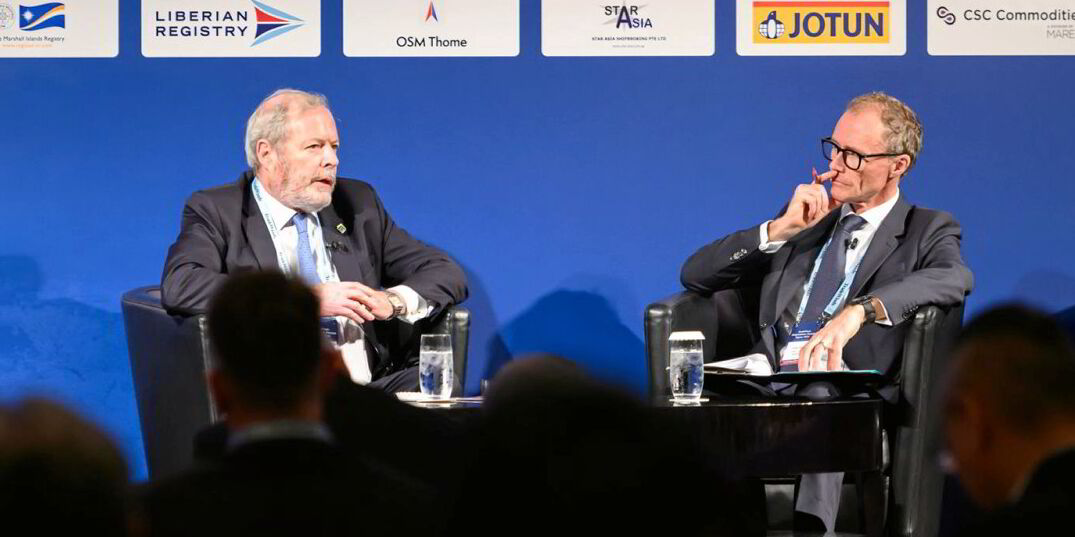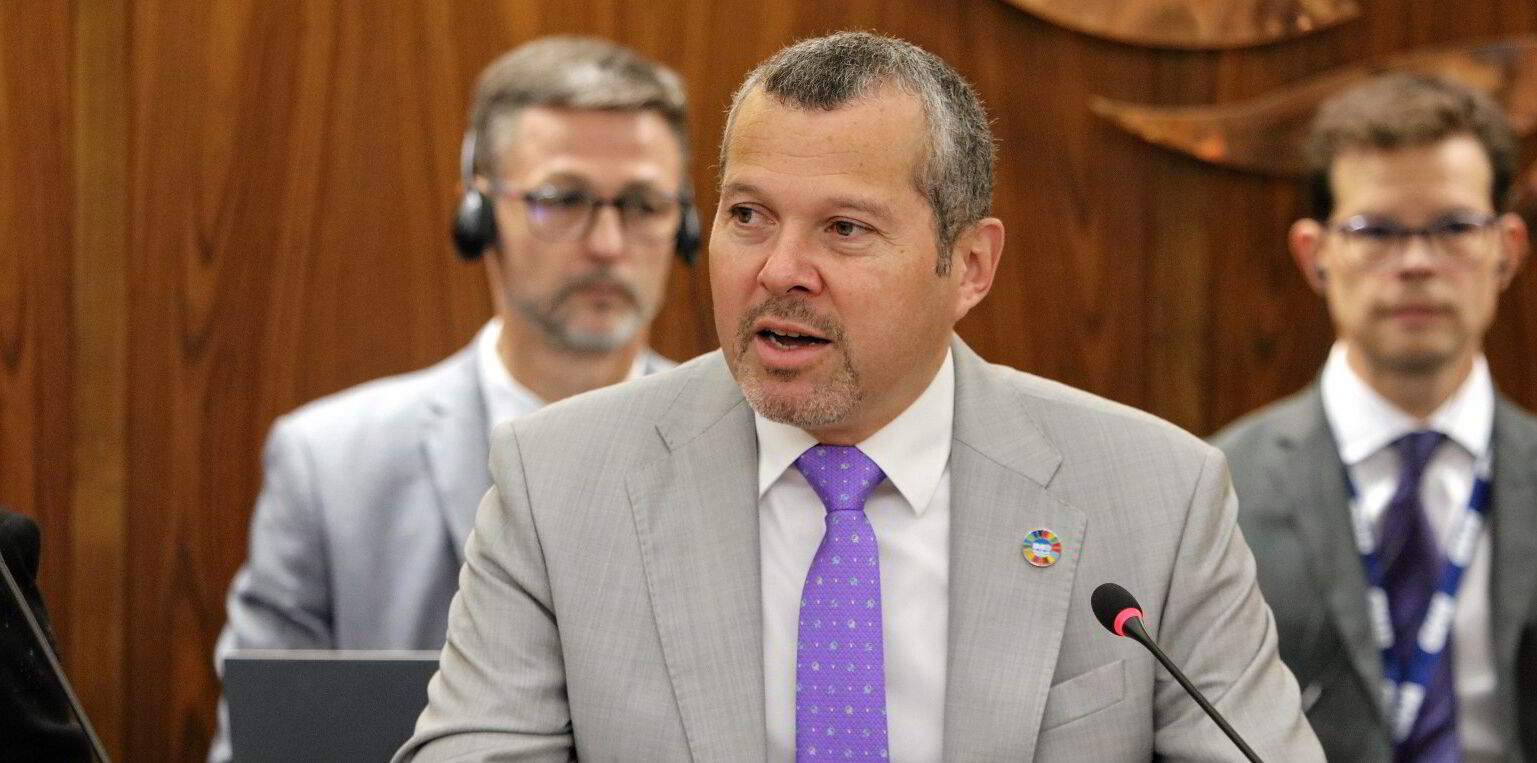Full transparency is needed on shipowners’ emissions data, but it may take several years for the full impact of the International Maritime Organization’s rules and banks’ efforts in green financing to emerge.
That was the conclusion of Michael Parker, Citi’s chairman of global shipping, logistics and offshore.
“People need to understand how powerful the IMO is, not just for the shipping industry but for every other industry in that it will define the Scope 3 emissions of every other industry that moves anything by sea,” he said at the TradeWinds Shipowners Forum Japan 2024.
Parker, who is also chairman of the Poseidon Principles, said that the data is needed for compliance with IMO regulations.
“All that should be in the public domain,” he said.
The information is currently confidential in the IMO database and legally owned by the shipowner.
“We need every shipowner to publicise that data,” he said, explaining that the IMO should make it public.
He rejected accusations of greenwashing or greenhushing, which is when companies choose not to speak about their climate targets.
But he said it will take two to three more years to see the true impact of what the IMO and lenders to the shipping industry are doing.
“Greenwashing and greenhushing, in the context of shipping, I think is unfair and unlikely,” he said.
Emission reductions
Parker said the shipping industry has reduced its emissions “very significantly” in the last few years, mainly through operational and technical measures.
He said the goal between now and 2030 is to reduce emissions further and the Poseidon Principles enable the banks behind them to measure how effectively the clients they are lending to are doing this.
Parker said: “We have to address the issue that there are very few pure ‘green assets’ to finance at the moment.”
He said the industry really needs to see these dual-fuel vessels hit the water and see some green finance, which will probably be blue for maritime.
The Citi banker said he is feeling positive as when these assets become available to finance, the health of the shipping industry will be strong and the banks lending to it will have capacity.
Parker said the other big issue facing maritime is the seafarer.
He described how this group were treated during the pandemic as “a disgrace” and said the industry must address seafarer shortages and how roles are becoming more demanding within an increasingly complex industry.
Parker revealed that Poseidon Principles members have established a future principles committee to look at issues like seafarers, biodiversity and scrapping where finance, by being able to measure things, can help owners with future compliance.
“It is about being collaborative and helping people make the changes we need to make,” he said.
Asked by TradeWinds editor-in-chief Julian Bray what the Poseidon Principles had achieved, Parker recounted that the group launched with 11 major banks.
It now boasts 35 international banks and export credit agencies, including six from Japan.
Parker said Poseidon Principles members represent about two-thirds of shipping finance.
He urged non-signatories — especially those who use the Poseidon Principles in their literature but do not have a subscription — to sign up.
The Citi shipping chair revealed that the grouping will also be working on an associate membership.
He said the Poseidon Principles set out to be global and hopes to expand further in Asia.






